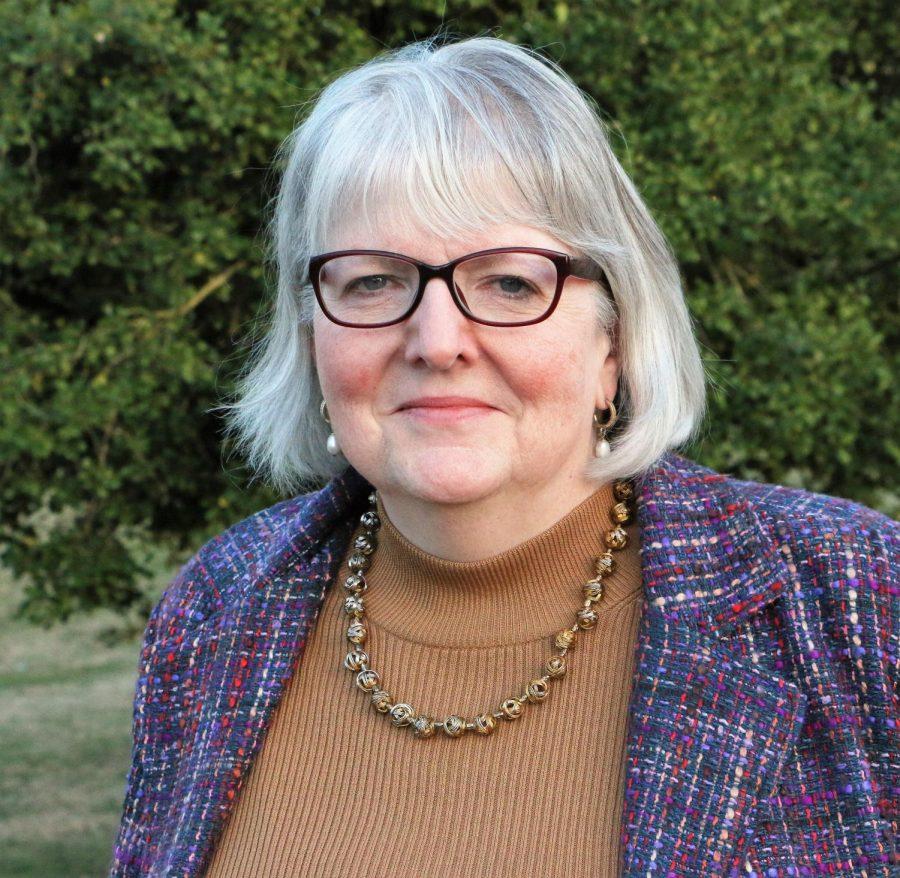Adjunct professors juggle full-time jobs, teaching
Carolyn Kerr works as an adjunct professor in Pitt’s College of Business Administration in addition to working as a communications consultant in the practice she started at age 29.
January 27, 2021
While some professors start a career in their industry and then transition to teaching full-time, others never leave that first career and start to teach as a passion.
Dan Malakoff, an adjunct English professor, also owns his own carpentry business. He said that although teaching part-time is less profitable than his carpentry business, he continues to teach purely for the joy of teaching.
“I enjoy teaching,” Malakoff said. “Also, teaching uses a different part of my brain. I like that variation in what I’m doing. I like that it keeps me intellectually on my toes.”
Many Pitt professors across multiple fields, from communications to English to statistics, all chose to pursue teaching while maintaining other careers.
Carolyn Kerr works as a communications consultant in addition to working as an adjunct professor in Pitt’s College of Business Administration. She started her own consulting practice at 29. Since that time, Kerr’s clients have included Chrysler, Bank of America, Coca-Cola and the U.S. State Department. Kerr said her consulting work is split between production and workshops.
“It is a two-fold consulting practice. I do corporate communications consulting, which means anything somebody needs to have written, video scripting — anything they need to have produced, I will work on for them,” Kerr said. “On the other side I do instructional design and delivery of courses — training materials and that sort of thing.”
Like Kerr, Malakoff is self-employed. As a carpenter, he has done built-in shelves, hardwood floors, custom fences and historic restoration work since he was 17. Malakoff graduated from Pitt with an MFA “many years ago.” Now, he usually teaches an evening writing class. Malakoff said owning his own business gives him the flexibility to pursue both teaching and woodworking.
“My bread and butter is the carpentry work. I own my business, so I have a good amount of flexibility,” Malakoff said. “It’s not particularly hard for me to balance the two jobs.”
Malakoff said carpentry has made him good at communicating clearly — a skill that’s helped him as a professor.
“I think I’m good at talking to regular people. Most of my clients are regular people, they’re not academics. As a teacher, I can communicate with students as a regular person, not as an academic,” Malakoff said. “The carpentry work keeps me very down to Earth.”
Similarly, Kerr said her career experience as a consultant makes her a better professor, and vice versa.
“It’s absolutely the best of both worlds,” Kerr said. “In the classroom, when I’m teaching theory of communication, I can say ‘let me tell you about something that happened with a client this week.’ I’m able to say ‘here’s how it works in real life.’ And because I’m constantly reading literature and learning more from the educational side, those are things I can apply to the work that I do for my clients.”
Malakoff said his separation from academia differentiates him from other professors.
“I’m not immersed in a world of ideas all day. I’m not. I don’t do research for a living. I don’t write for a living. I don’t go to academic conferences. I’m not part of that world,” Malakoff said. “I’m part of a world where I wake up every morning. I build things. I come home. It’s not cerebral.”
For Sarah Quesen, an adjunct statistics professor and full-time senior research scientist at Pearson, teaching is a way to express her passion for statistics that she says can’t necessarily be filled by just her corporate job.
“I really dig statistics. I am stoked about statistics and I like sharing it. You can’t just walk up to someone at Denny’s and be like ‘hey, let me tell you about the central limit theorem,’” Quesen said. “I have a captive audience to share this thing that I really think is fascinating.”
Quesen said she feels there’s overlap between her job as a professor and that of a corporate employee.
“There’s a massive crossover. I think my teaching background has given me a lot of tools to use at work. And my work gives me a lot of real life appreciation and examples of what’s important in terms of statistics,” Quesen said.
But teaching can take up a lot of time when also working a full-time job. Malakoff said he appreciates the flexibility Pitt gives its part-time faculty.
“It’s very easy to teach at Pitt. The class sizes are relatively small. I’m allowed to create my own curriculum,” Malakoff said. “As long as I’m doing a good job, I’m basically left to my own devices. I do a good job. My semester evaluations always show that I do a good job.”
Quesen said managing two careers can be tough but her love for teaching motivates her.
“I have a serious type-A personality. It definitely eats away your quote-unquote free time. But I love teaching. It’s not like work,” Quesen said. “The actual student interaction — teaching, answering questions, answering their emails and trying to help them — I like it. It’s work but it’s not.”
Kerr said she keeps teaching despite her busy consulting career to help guide young professionals.
“I like to think I can help some of my students avoid some of the obstacles or mistakes from early in my career,” Kerr said. “That’s why I love it.”
Quesen said she has no regrets about the time she has poured into her two careers.
“No, I don’t [regret it]. I just feel like it’s in my blood. My parents were this way. I don’t know what I would do otherwise,” Quesen said. “I definitely love teaching and I don’t have any regrets about spending as much time as I do doing it.”








